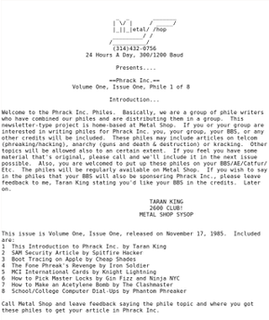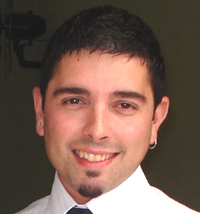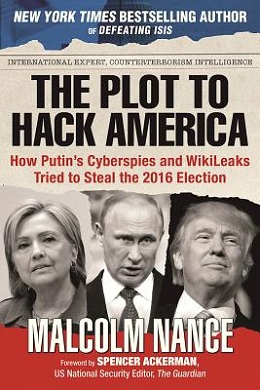A computer hacker is a computer expert who uses their technical knowledge to achieve a goal or overcome an obstacle, within a computerized system by non-standard means. Though the term hacker has become associated in popular culture with a security hacker – someone who utilizes their technical know-how of bugs or exploits to break into computer systems and access data which would otherwise be unavailable to them – hacking can also be utilized by legitimate figures in legal situations. For example, law enforcement agencies sometimes use hacking techniques in order to collect evidence on criminals and other malicious actors. This could include using anonymity tools to mask their identities online, posing as criminals themselves. Likewise, covert world agencies can employ hacking techniques in the legal conduct of their work. Oppositely, hacking and cyber-attacks are used extra- and illegally by law enforcement and security agencies, and employed by State actors as a weapon of both legal and illegal warfare.
A script kiddie, skiddie, or skid is a relatively unskilled individual who uses scripts or programs, such as a web shell, developed by others to attack computer systems and networks and deface websites, according to the programming and hacking cultures. It is generally assumed that most script kiddies are juveniles who lack the ability to write sophisticated programs or exploits on their own and that their objective is to try to impress their friends or gain credit in computer-enthusiast communities. However, the term does not relate to the actual age of the participant. The term is considered to be derogatory.

Phrack is an e-zine written by and for hackers, first published November 17, 1985. Described by Fyodor as "the best, and by far the longest running hacker zine," the magazine is open for contributions by anyone who desires to publish remarkable works or express original ideas on the topics of interest. It has a wide circulation which includes both hackers and computer security professionals.

2600: The Hacker Quarterly is an American seasonal publication of technical information and articles, many of which are written and submitted by the readership, on a variety of subjects including hacking, telephone switching systems, Internet protocols and services, as well as general news concerning the computer "underground."

Kevin David Mitnick is an American computer security consultant, author, and convicted hacker. He is best known for his high-profile 1995 arrest and five years in prison for various computer and communications-related crimes.

Google Hacks: Tips & Tools for Smarter Searching is a book of tips about Google, a popular Web search engine, by Tara Calishain and Rael Dornfest. It was listed in the New York Times top ten business paperbacks in May 2003, considered at the time to be "unprecedented" for a technology book, and "even rarer" for the topic of search engines. The book was first published by O'Reilly in February 2002. Third edition of the book was released in 2006.
Tsutomu Shimomura is a Japanese-born American physicist and computer security expert. He is known for helping the FBI track and arrest hacker Kevin Mitnick. Takedown, his 1996 book on the subject with journalist John Markoff, was later adapted for the screen in Track Down in 2000.

SQL injection is a code injection technique used to attack data-driven applications, in which malicious SQL statements are inserted into an entry field for execution. SQL injection must exploit a security vulnerability in an application's software, for example, when user input is either incorrectly filtered for string literal escape characters embedded in SQL statements or user input is not strongly typed and unexpectedly executed. SQL injection is mostly known as an attack vector for websites but can be used to attack any type of SQL database.

In the context of information security, social engineering is the psychological manipulation of people into performing actions or divulging confidential information. This differs from social engineering within the social sciences, which does not concern the divulging of confidential information. A type of confidence trick for the purpose of information gathering, fraud, or system access, it differs from a traditional "con" in that it is often one of many steps in a more complex fraud scheme.

Mark T. Abene is an American infosec expert and entrepreneur, originally from New York City. Better known by his pseudonym Phiber Optik, he was once a member of the hacker groups Legion of Doom and Masters of Deception.

Jacob Stewart Hacker is an American professor and political scientist. He is the director of the Institution for Social and Policy Studies and a professor of political science at Yale University. Hacker has written works on social policy, health care reform, and economic insecurity in the United States.
A security hacker is someone who explores methods for breaching defenses and exploiting weaknesses in a computer system or network. Hackers may be motivated by a multitude of reasons, such as profit, protest, information gathering, challenge, recreation, or evaluation of a system weaknesses to assist in formulating defenses against potential hackers. The subculture that has evolved around hackers is often referred to as the "computer underground."

Ankit Fadia is an Indian author, speaker, television host, a security charlatan, and self-proclaimed white-hat computer hacker. His work mostly involves OS and networking tips and tricks and proxy websites.
Firewalls and Internet Security: Repelling the Wily Hacker is a 1994 book by William R. Cheswick and Steven M. Bellovin that helped define the concept of a network firewall. Describing in detail one of the first major firewall deployments at AT&T, the book influenced the formation of the perimeter security model, which became the dominant network security architecture in the mid-1990s.

AirDrop is a proprietary ad hoc service in Apple Inc.'s iOS and macOS operating systems, introduced in Mac OS X Lion and iOS 7, which can transfer files among supported Macintosh computers and iOS devices by means of close-range wireless communication.
TeaMp0isoN was a computer security research group consisting of 3 to 5 core members. The group gained notoriety in 2011/2012 for its blackhat hacking activities, which included attacks on the United Nations, NASA, NATO, Facebook, Minecraft Pocket Edition Forums, and several other large corporations and government entities. TeaMp0isoN disbanded in 2012 following the arrests of some of its core members, "TriCk", and "MLT".
A cyberattack is any offensive maneuver that targets computer information systems, computer networks, infrastructures, or personal computer devices. An attacker is a person or process that attempts to access data, functions, or other restricted areas of the system without authorization, potentially with malicious intent. Depending on the context, cyberattacks can be part of cyber warfare or cyberterrorism. A cyberattack can be employed by sovereign states, individuals, groups, society, or organizations, and it may originate from an anonymous source. A product that facilitates a cyberattack is sometimes called a cyber weapon.
Elias Ladopoulos is a technologist and investor from New York City. Under the pseudonym Acid Phreak, he was a founder of the Masters of Deception (MOD) hacker group along with Phiber Optik and Scorpion. Referred to as The Gang That Ruled Cyberspace in a 1995 non-fiction book, MOD was at the forefront of exploiting telephone systems to hack into the private networks of major corporations. In his later career, Ladopoulos developed new techniques for electronic trading and computerized projections of stocks and shares performance, as well as working as a security consultant for the defense department. He is currently CEO of Supermassive Corp, which is a hacker-based incubation studio for technology start-ups.

The Plot to Hack America: How Putin's Cyberspies and WikiLeaks Tried to Steal the 2016 Election is a non-fiction book by Malcolm Nance about what the author describes as Russian interference in the 2016 United States elections. It was published in paperback, audiobook, and e-book formats in 2016 by Skyhorse Publishing. A second edition was also published the same year, and a third edition in 2017. Nance researched Russian intelligence, working as a Russian interpreter and studying KGB history.









